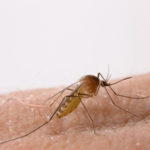Learn more about menopause
Menopause is the point in time when a woman’s menstrual periods stop. Menopause happens because the ovaries stop producing the hormones estrogen and progesterone. Once you have gone through menopause, you can’t get pregnant anymore. Some people call the years leading up to a woman’s last period menopause, but that time actually is the menopausal transition, or perimenopause (PER-ee-MEN-oh-pawz).
During the time of the menopausal transition (perimenopause), your periods can stop for a while and then start again. Therefore, the only way to know if you have gone through menopause is if you have not had your period for one year. (And it’s not menopause if your periods stop for some other reason, like being sick.) The average age of menopause is 51, but for some women it happens as early as 40 or as late as 55.
After you go through menopause, you are considered in the post-menopausal stage of your life. Your female hormones won’t go up and down the way they used to with your periods. They will stay at very low levels.
Some women worry about menopause, and it can cause uncomfortable symptoms. But there are many ways to treat symptoms and stay active and strong.
Usually, menopause is natural. That means it happens on its own, and you don’t need medical treatment unless your symptoms bother you. Sometimes, though, menopause is medically induced, which means it’s caused by an operation or medication. If so, you should work closely with your doctor to feel comfortable and take good care of your health.
Information courtesy of:
http://www.womenshealth.gov/menopause/index.html




